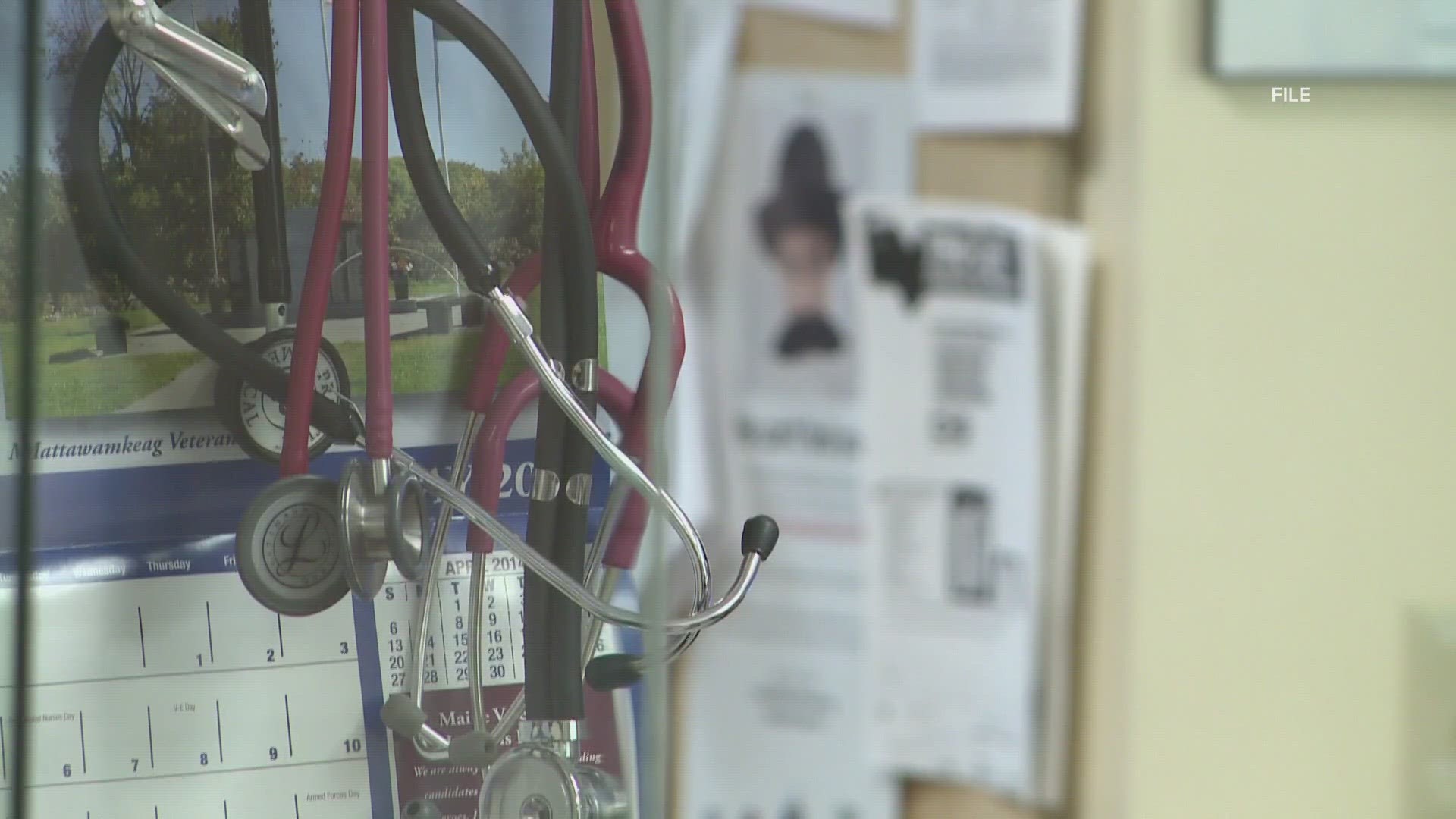AUGUSTA, Maine — People stood nearly shoulder-to-shoulder in the large foyer of the Burton M. Cross Office Building that sits across from the Maine State House.
The din of conversation could be heard from the floor below. Some in the crowd stood together and began singing Christian hymns.
Inside a nearby hearing room, the Legislature's Joint Committee on Health Coverage, Insurance, and Financial Services settled in for lengthy public testimony lasting well over six hours by the time of this article's filing.
The sole bill on the agenda was LD 227, An Act Regarding Health Care in the State.
The bill regards two of the most hotly debated topics in Maine over the past several years: abortion care and gender-affirming care.
Simply put, passage of the bill would do the following:
- Prohibit interference with legal reproductive and gender-affirming care in Maine
- Work to legally protect medical providers and compel the state not to cooperate with lawsuits for performing such care
- Could allow for the concealment of medical records from entities pursuing legal action against providers or patients involved in that care
The bill is considered a form of "shield law," the likes of which have appeared in state lawbooks only recently but have quickly gained steam. Since 2022, 15 states have enacted shield or refuge laws, protecting medical providers from legal action for providing transgender health care.
Shield laws are a direct response to the 22 states that have passed bans or restrictions on both surgery and medication for transgender youth.
Patience Crozier is the director of family advocacy for GLBTQ Legal Advocates and Defenders (GLAD) and testified in favor of LD 227.
"I think we're seeing across the country really horrible attacks on transgender people and on health care, which means that parents can't get the health care they need for their children—which means providers are worried they're not able to practice their craft," she said. "I think, in Maine, where reproductive and transgender health care is legal, this bill is really important to state the values of Maine and make sure that we're protecting our providers from those attacks from other states."
During their weekly meeting with the press, Republican lawmakers used strong language to describe their fears if the bill passed.
GOP leader Rep. Billy Bob Faulkingham of Winter Harbor described the bill as "disgusting" and "vile."
Rep. Katrina Smith, R-Palermo, suggested it could allow physicians to conduct procedures that could be "condemning people to a life of constant pain and suffering."
The American Psychological Association wrote this month it supports "unobstructed access to evidence-based clinical care for transgender, gender-diverse, and nonbinary children, adolescents, and adults."
In 2023, the American Medical Association clarified its stance on gender-affirming care.
"[The AMA] recognizes that medical and surgical treatments for gender dysphoria and gender incongruence, as determined by shared decision making between the patient and physician, are medically necessary as outlined by generally accepted standards of medical and surgical practice," the group wrote on its website.
Multiple Republicans at the presser said plainly LD 227 would cause kidnapping from other states to Maine.
"Who could ever believe that anyone could consider legalizing the bringing up of a child from another state to Maine, against the parent’s wishes or even knowledge, effectively kidnapping a minor," Sen. Stacey Guerin, R-Penobscot, added.
"It is extreme in its assault on family values. It sanctions kidnapping and shields doctors from any consequences," Rep. Josh Morris, R-Turner, said.
None of the bill's 21 pages would loosen Maine's kidnapping or human trafficking laws. When asked for clarification on their remarks, multiple lawmakers at the press conference expressed concern that minors seeking gender-affirming care might be more likely to come to Maine, brought by an adult against the will of the minor's legal guardians.
Several GOP members also voiced concern that LD 227 shares much of the same language and aim as LD 1735, An Act to Safeguard Gender Affirming Health Care. That bill excluded abortion provisions. The judiciary committee on Jan. 25 voted "ought not to pass." The bill died, and Faulkingham and others at the presser believed that meant the people of Maine and lawmakers had effectively spoken on the matter.
Lisa Margulies of Planned Parenthood of Northern New England said LD 227 would be vital to ensuring health care providers could provide necessary care without fear.
"It's crucially important that we attempt to shield our providers from out-of-state actors that are really extremists," she said, mentioning the states that have moved to end the care there.
As the sun set, there was a mix of emotion among the throng who waited for the committee hearing to begin.
Gail Desjardins of Livermore and Lorie Morris of Livermore Falls described that they felt they were doing right by their faith in opposing the bill and that, as followers of Christ, they had to fight for life.
"We do not want to be known as a state or a nation that encourages abortion and the mutilation of children," Desjardins said.
Across the room, Elayne Richard had a stern face while holding a sign that read, "Protect patients and providers."
"The doctors and the patients need to know that they can seek medical care without fear of prosecution and criminalization," she said.
Security guards opened at least two overflow rooms for those who wanted to listen or speak to the committee, and the crowd settled in for a long evening.

